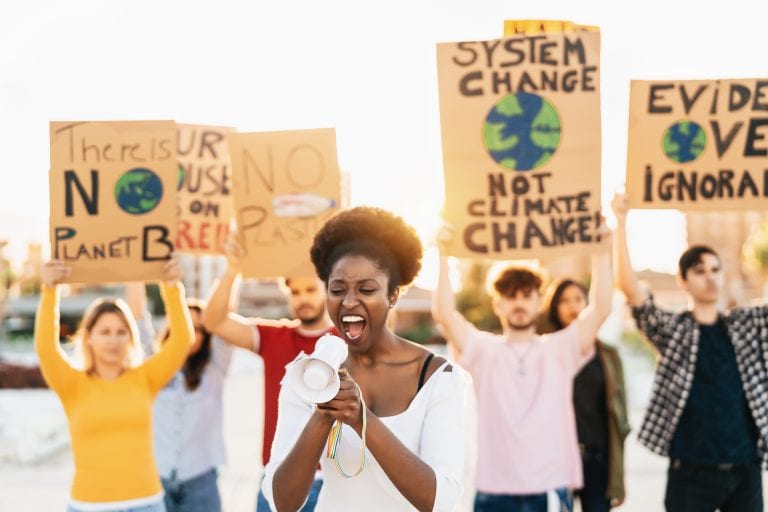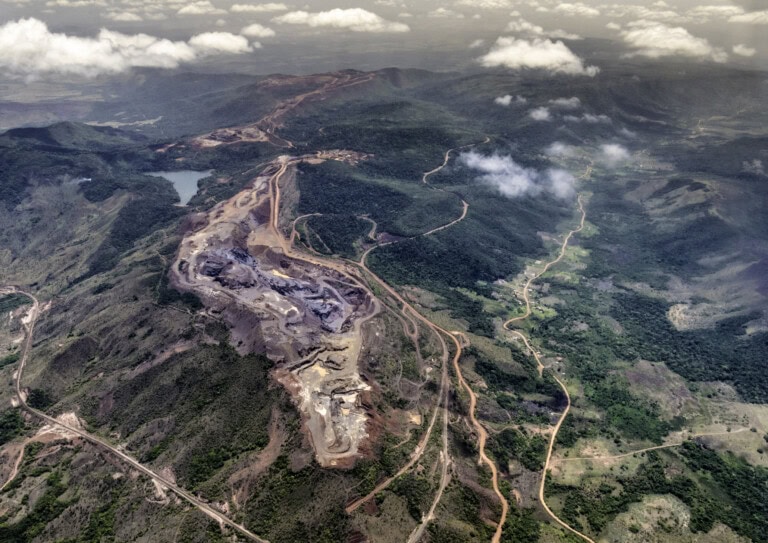We must deliver a just transition to net zero

The last year has seen a monumental rise in climate and decarbonisation commitments. World-wide, corporate commitments to reach net zero have doubled in less than a year[1]. While, nearly three-quarters of UK councils and combined authorities have declared climate emergencies and more than half of those have committed to delivering net zero carbon by 2050[2].
For those who have set commitments, discourse must now shift towards climate action and commitment delivery. Mapping a route towards net zero carbon requires significant changes in business-as-usual products, practices, and policies.
These changes will not happen in a vacuum. Delivering on stretching decarbonisation targets will inevitably have knock-on social and economic impacts. Understanding and navigating these impacts will be critical to avoid deepening existing inequalities and support a just transition – one which improves lives and livelihoods, ‘levels up’ across communities and leaves no-one behind.
As Mary Robinson (former President of Ireland, former UN High Commissioner for Human Rights and current Chair of The Elders) urged:
“As we pursue this new stage of bold action, we will succeed only if we recognise that the struggle to combat climate change is inextricably linked to tackling poverty, inequality and exclusion. If we keep that link foremost in our minds, our solutions will be more effective and more enduring”[3].
Justice and climate change
The just transition is a concept which encourages the shift from an extractive economy to a regenerative economy, using approaches that are holistic, just and ensure no-one is left behind[4]. Originating from 1970s USA, the Just Transition movement identified that many people would lose out from an industrial shift and worked to safeguard the rights of those affected[5] . In other words, “it describes both where we are going and how we get there”[6].
The just transition is closely related to climate justice, a topic in the spotlight when discussing climate change at a global scale. Climate justice is the concept of viewing climate change through the lens of human rights. It identifies how the causes and effects of climate change are unequally and unfairly distributed. The climate justice movement works to safeguard the rights of the most vulnerable people and share the burdens and benefits of climate change and its resolution equitably and fairly[7].
When considering the just transition, there is a strong link to climate resilience and adaptation; looking at how climate change will impact different people unequally and unfairly and acting to mitigate this risk. For example, adapting buildings and infrastructure at risk of overheating to ensure people are not unequally and unfairly impacted by climate change.
The just transition of the built environment
One of the barriers to delivering a just transition is the multi-faceted nature of the issue, especially for such a complex sector as the built environment. To help with this we have developed an infographic to make it easier to identify some of the key issues.
The graphic below highlights some of the opportunities for the built environment sector to support a just transition to net zero carbon. The points highlighted by the graphic are not only socially responsible considerations, but considerations that are essential to the success of the race to net zero. It is intended as a provocation and inspiration for further dialogue and exploration of these themes.
Access the graphic here.
Future work
Thank you to the Social Value Programme steering group and the members of the climate justice interest group for your support on this work.
From March 2021, UKGBC is looking to bring together a cross-industry task group to explore this issue further. If you would like to get involved, or have any questions please contact us: anna.biggs@ukgbc.org
Join the debate on twitter using #UKGBCJustTransition and let us know what the built environment sector should be doing to ensure a just transition to net zero. Social media graphics can be downloaded here.
References
[1]UNFCCC., 2020, Commitments to Net Zero Double in Less Than a Year: https://unfccc.int/news/commitments-to-net-zero-double-in-less-than-a-year
[2] Edie., 2020, Majority of local authorities have declared climate emergencies: https://www.edie.net/news/9/Majority-of-local-authorities-have-declared-climate-emergencies/
[3] Mary Robinson., 2018. Climate Justice: A manmade problem with a feminist solution: https://www.bloomsbury.com/uk/climate-justice-9781408888469/
[4] Climate Justice Alliance., 2020, Just Transition: A Framework for Change: https://climatejusticealliance.org/just-transition/
[5] Mary Robinson., 2018. Climate Justice: A manmade problem with a feminist solution: https://www.bloomsbury.com/uk/climate-justice-9781408888469/
[6]Climate Justice Alliance., 2020, Just Transition: A Framework for Change: https://climatejusticealliance.org/just-transition/
7 Mary Robinson Foundation Climate Justice., 2020, Principles of Climate Justice: https://www.mrfcj.org/principles-of-climate-justice/
Related
Navigating the challenges around hard-to-recycle materials

What are the environmental impacts of construction materials? An introduction to Embodied Ecological Impacts

Why is social value so crucial when developing and managing commercial real estate?

Biodiversity Net Gain: Are you ready for the incoming legislation?

